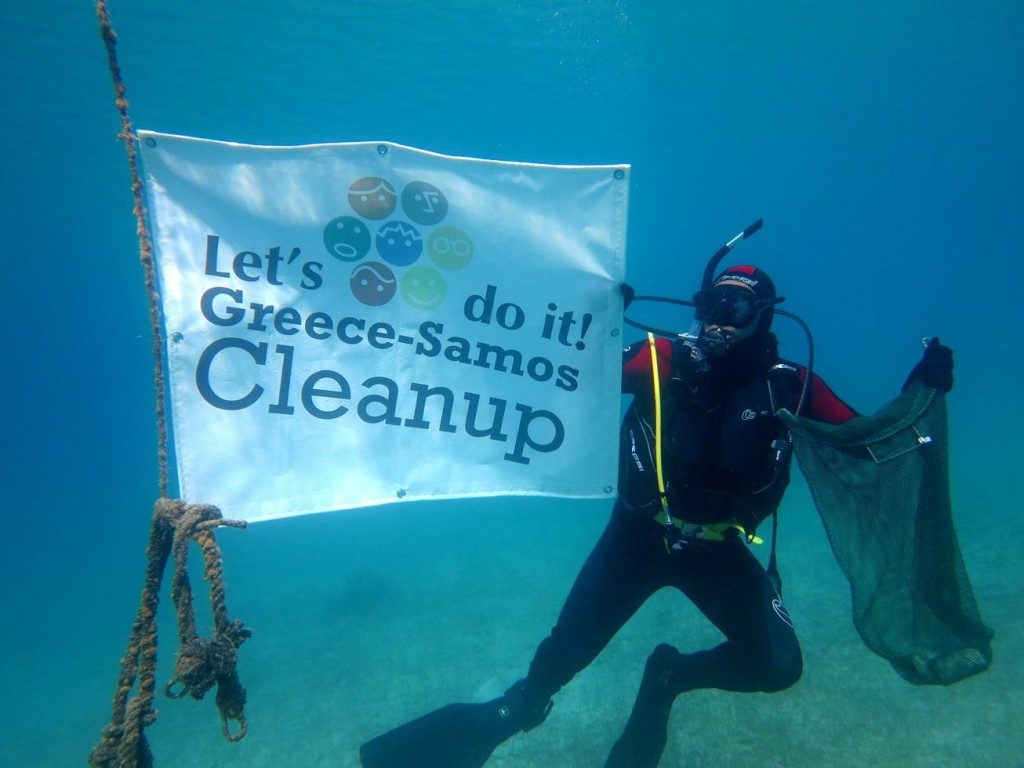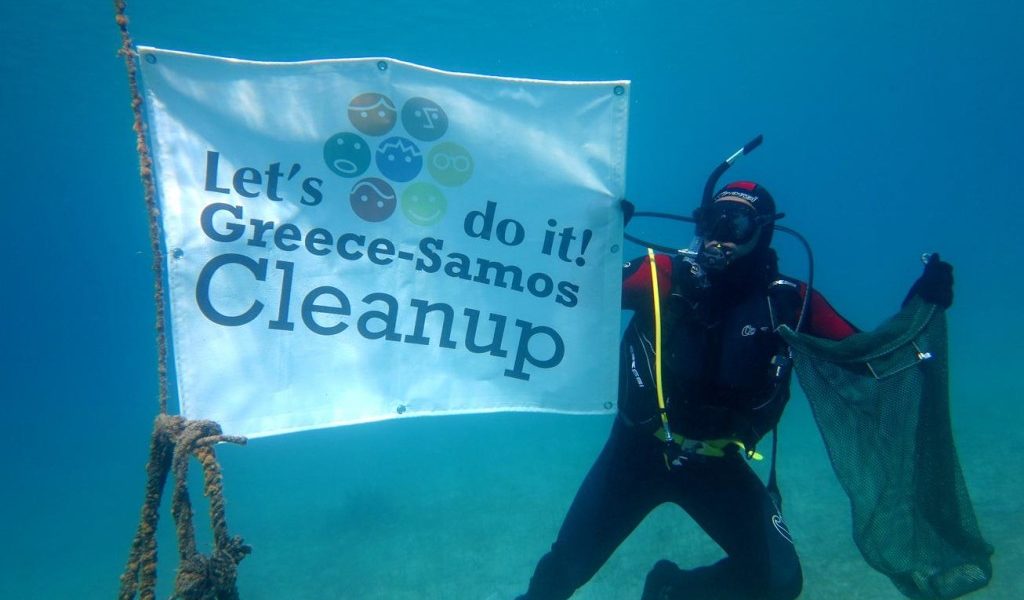
On the occasion of World Oceans Day on Friday, experts warned of the real threats to Greece’s seas and coastline from plastics pollution and climate change.
With an expected record of 32 million tourists this year, pollution is a real concern.
In May Greece took part in the "Let's Clean-up Europe" action coordinated by HELMEPA, with the participation of more than 5,000 volunteers in 118 cleaning initiatives across the country.

As a result, cigarette butts emerged as the number one litter item on Greek beaches with over 65,000 cleaned up. Present on the top 10 list are also plastic litter items connected to coastal leisure activities, such as straws (14,568), food containers (13,799), bottles (10,526), plastic bottle caps (9,897) and bags (6,134).
A total of 70 percent of the waste comes from land-based activities, and much of it comes from the mountains and the hinterland, ending up in the sea and at the coast by the wind, rivers, torrents, even the road network.
"We celebrate World Oceans Day to remind everyone of the major role the oceans have in everyday life. They are the lungs of our planet, providing most of the oxygen we breathe," a UN note read.
As the main theme for the 2018 World Oceans Day was the plastic pollution, WWF focused on this challenge for the Mediterranean Sea.
According to UN data some 300,000 tons of plastic end up in the Mediterranean Sea each year, according to the WWF report which calls in particular Turkey, Spain, Italy, France, Greece, Egypt and Algeria to take measures.
"If we wish to keep saying that we are a country with unique marine wealth and tradition, we should act now," Achilleas Plitharas, head of WWF Hellas public awareness programs, said in a press release.
Greeks recycle only 20 percent of the plastics they use, while half of the litter items found on Greek beaches are plastics, according to the report.
According to WWF Hellas in addition to the plastics challenge, the impact of climate change is already evident, as the 60 percent of fish species in the Greek seas are affected.


